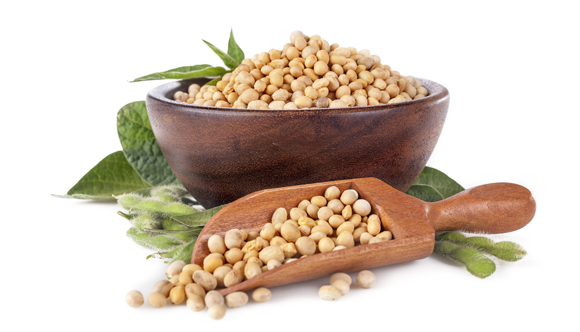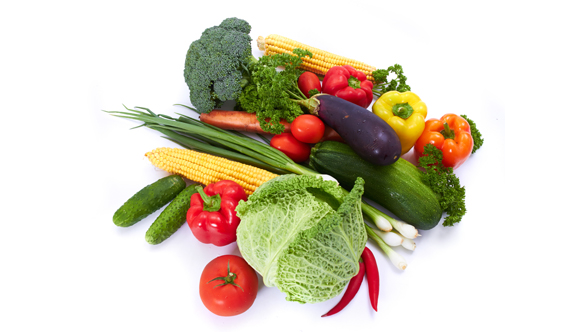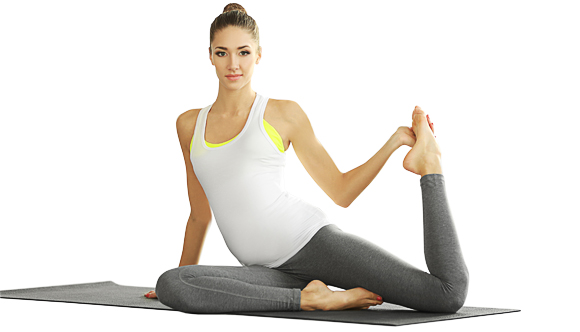
PCOS and Pregnancy
Trying to start a family without success can be a painful time for any couple. Apart from the physical aspect of being unable to conceive, couples dealing with infertility are often emotionally weak and feel a loss of confidence and self-esteem.
Did you know that polycystic ovarian syndrome (PCOS) and pregnancy are closely linked? Yes, you read it right. A woman with PCOS may face complications in conceiving, early miscarriage, abnormal blood sugar levels and several other difficulties. There are many aspects linked, which have to be reviewed while getting pregnant with PCOS. To begin with, the woman must ovulate i.e. her ovaries must produce eggs for fertilization.
 Next, her fallopian tubes should not be blocked and enable the fertilised egg to travel from her ovaries to her uterus. Then, the fertilised egg must be able to lodge itself on the lining of the uterus and finally, the woman must produce the necessary hormones to help sustain the egg. Physical, emotional as well as environmental factors can affect fertility.
Next, her fallopian tubes should not be blocked and enable the fertilised egg to travel from her ovaries to her uterus. Then, the fertilised egg must be able to lodge itself on the lining of the uterus and finally, the woman must produce the necessary hormones to help sustain the egg. Physical, emotional as well as environmental factors can affect fertility.
Failure to ovulate often makes it difficult for a woman from getting pregnant. Without ovulation, eggs are not available to be fertilised. Various factors can cause ovulation problems. The common factors include oral contraceptives, deficiency of B-vitamins or zinc, strenuous exercising, excessive weight loss or weight gain, stress, nutrition deficiencies, lack of sleep and thyroid.
Proper nutrition is important during PCOS pregnancy not only for general well-being but also to improve fertility and lose excess weight. A healthy balanced diet combined with proper supplementation can greatly enhance fertility and improve a woman’s chances of getting pregnant with PCOS.
Tips for Getting Pregnant with PCOS
PCOS is a condition in which women with polycystic ovaries can suffer from symptoms such as irregular or missed periods, extra hair growth on the face, weight gain or weight loss, acne and other skin-related issues, and problems getting pregnant. Know more about the causes of PCOS.
There are ways to increase chances of getting pregnant with PCOS. Below are some of them –
Lose weight
Many women with PCOS are overweight or gain weight because of PCOS. In fact, obesity in women with PCOS is as high as 80%. So, losing even 5% of body weight can drastically reduce the symptoms of PCOS and help to get pregnant with PCOS.
A PCOS-friendly diet
 If you have PCOS, a diet plan is crucial for managing your condition. Load up your PCOS diet with –
If you have PCOS, a diet plan is crucial for managing your condition. Load up your PCOS diet with –
- Green leafy vegetables as they improve digestion, glucose regulation and reduce the risk of heart disease.
- Colourful vegetables such as broccoli, bell peppers, cauliflower, beans, carrots, tomatoes and egg plant are excellent sources of vitamins, minerals and fibre. Eating such foods regularly may reduce the risk of osteoporosis in menopausal women and increases chances of getting pregnant with PCOS.
- Berries such as blueberries, strawberries, black currant and blackberries are immune-boosting fruits. They protect the heart, help you lose weight, regulate insulin levels and fight inflammation.
- Nuts like walnuts, almonds, cashews and seeds such as flax, chia and hemp are rich in proteins and minerals. Pumpkin seeds especially regulate hormones, improve hair, skin and nails’ health, and regulate periods.
- Fish such as salmon, tuna and mackerel contain heart-healthy Omega-3 fatty acids and fat-soluble nutrients. Eat fish 3-4 times in a week.
For PCOS-friendly recipes, click here.
Moderate exercise
 Brisk walking, jogging, cycling or swimming are great activities for women with PCOS. Any form of exercise helps to reduce the insulin resistance which is common in PCOS. Moderate exercise also improves basal metabolic rate (BMR), which means less energy is stored as fat in the body.
Brisk walking, jogging, cycling or swimming are great activities for women with PCOS. Any form of exercise helps to reduce the insulin resistance which is common in PCOS. Moderate exercise also improves basal metabolic rate (BMR), which means less energy is stored as fat in the body.
Exercising also normalizes stress levels, something which is often observed in PCOS women during pregnancy. Most importantly, exercising for at least 45 minutes in a day helps you maintain a healthy body weight, ensures regular bowel movement and removes toxins.
So, for getting pregnant with PCOS, women should try a combination of cardio and strength exercises and do yoga, as it calms the mind, body and soul, reduces stress, improves blood circulation and mood.
Nutrients and Supplements
Women with PCOS must consume around 100-200 mg of vitamin B6, which helps to maintain healthy hormone levels. Good sources are eggs, soya bean, rice, oats and whole wheat products. Nutrients that help increase fertility in women include iron, folic acid, vitamin B12 and bio flavinoids found in fresh vegetable juices and in coloured fruits. Take Selenium and vitamin D on a daily basis.
To know what will work best for your unique body type, speak to Health Total experts. Call our toll-free 1-800-843-0206 to book an appointment. Get first FREE consultation and a personalised diet plan for PCOS.
